Multiple Choice
Find the vertex, the y-intercept, and the x-intercepts (if any exist) , and graph the function.
- 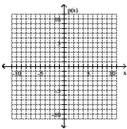
A) 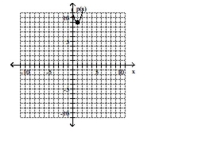
Vertex
no -int;
-int
B) 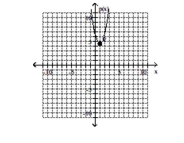
no -int;
C) 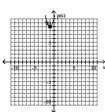
Vertex
no -int;
-int
D) 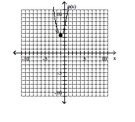
no -int;
-int
Correct Answer:

Verified
Correct Answer:
Verified
Related Questions
Q24: Solve by the quadratic formula. Simplify
Q25: Graph the values of x that
Q26: Solve for x and graph the
Q27: Write a quadratic equation having the
Q28: Use the Pythagorean theorem to find
Q30: Use a graphing calculator to graph
Q31: Solve.<br>-A tour bus is traveling along a
Q32: Solve the equation by using the
Q33: Make an appropriate substitution in order
Q34: Find the vertex, the y-intercept, and